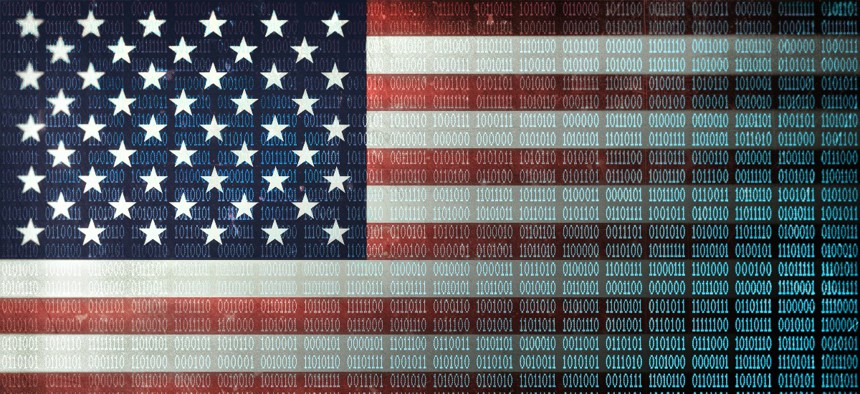U.S. Joins ‘Historic’ Global Group Focused on Data Privacy

Matt Anderson Photography/Getty Images
The newly-formed Global Cross-Border Privacy Rules Forum aims to promote international data sharing with an emphasis on bridging differences in privacy frameworks.
The U.S. announced its membership to a new international digital privacy organization last week that will work to advance, regulate and protect the cross-border sharing of data as international connectivity stands to increase.
The U.S formed the Global Cross-Border Privacy Rules Forum along with Canada, Japan, the Republic of Korea, the Philippines, Singapore and Taiwan, per an announcement from the Department of Commerce last week.
The new forum will work to create an international certification system for privacy protocols, based on existing ones in the Asia-Pacific Economic Cooperation and Privacy Recognition for Processors requirements.
“The establishment of the Global CBPR Forum reflects the beginning of a new era of multilateral cooperation in promoting trusted global data flows that are critically important to our modern economy,” Commerce Secretary Gina Raimondo said in a statement. “The Global CBPR Forum intends to establish the Global Cross Border Privacy Rules and Privacy Recognition for Processors Systems, first-of-their-kind data privacy certifications that help companies demonstrate compliance with internationally recognized data privacy standards.”
For the Global CBPR, data shared internationally lends support to economic growth, public health research and diplomatic relations. The organization aims to collaborate on reducing regulatory barriers that could hinder sharing data and digital resources between countries as the world works to recover from the COVID-19 pandemic.
Critically, the Global CBPR will also work on strengthening data protection and privacy regulations and promoting interoperable approaches to differing data privacy laws between nations.
Unlike other countries, the U.S. has no overarching federal data privacy and protection laws; rather, some states have passed their own local laws. Several bills have been introduced within the U.S. House of Representatives and Senate that aim to protect online users and consumers from certain data collection and sales.
“The new Forum will facilitate trade and international data flows and promote global cooperation, building on our shared data privacy values while recognizing the differences in our domestic approaches to protecting data privacy,” Raimondo said. “With this unique approach founded on creating practical compliance tools and based on cooperation, we can make the digital economy work for consumers and businesses of all sizes alike.”
The Global CBPR will convene at least biannually to coordinate its initiatives following formation.



